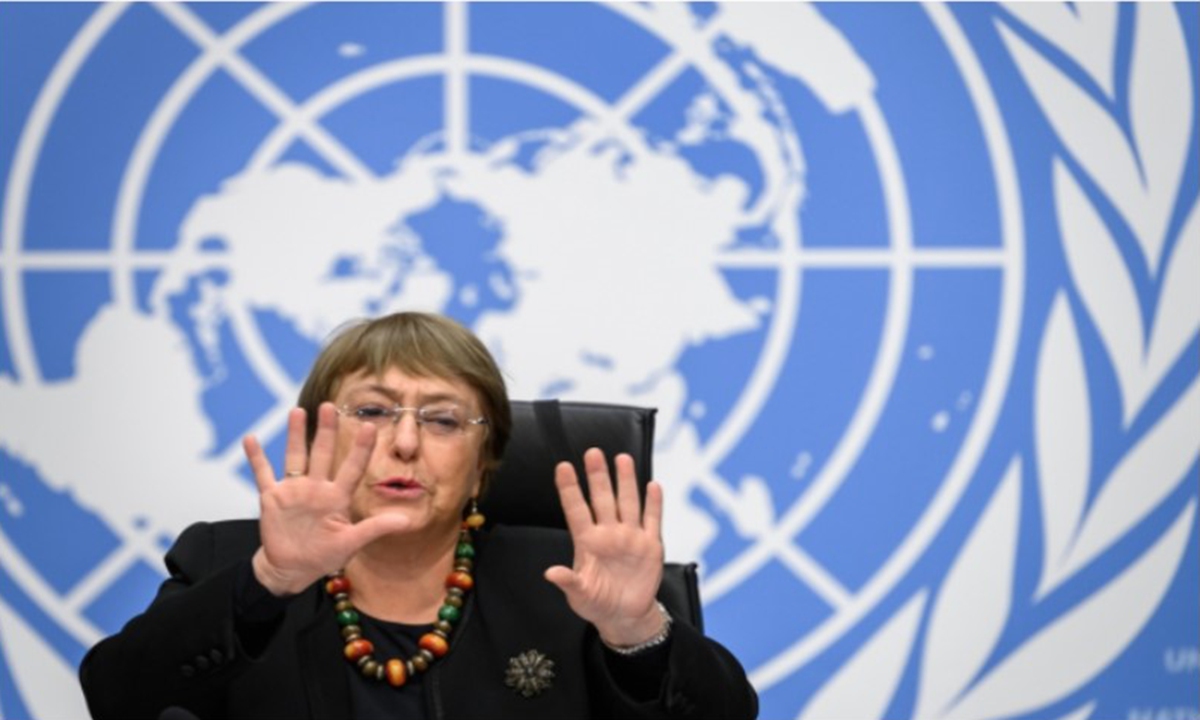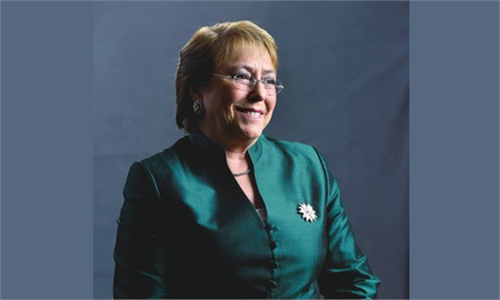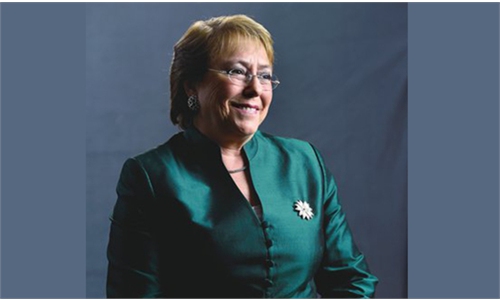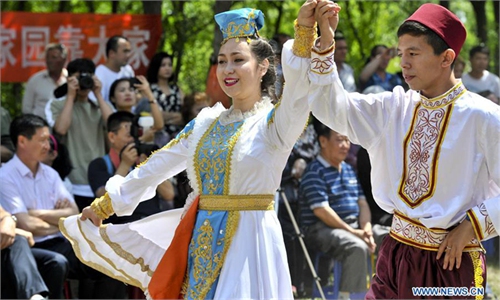Smear campaign, attempt to twist Xinjiang human rights issue likely to continue after Bachelet

Michelle Bachelet Photo: AFP
Michelle Bachelet, the United Nations High Commissioner for Human Rights, said on Monday that she would not seek a second term for personal reasons. The announcement came not long after her trip to China's Xinjiang Uygur Autonomous Region last month.It's reported that when she announced her decision at the end of a wide-ranging speech to the Geneva-based Human Rights Council, there was murmuring in the Geneva Council room. Some diplomats reportedly said they had expected Bachelet, former president of Chile who is considered close to UN Secretary-General António Guterres, to stay on after her four-year term expires at the end of August.
There has certainly been a lot of diplomatic rhetoric. But from what we know so far, her statement is still due to a lot of pressure, especially from many organizations such as the World Uyghur Congress and several rights groups.
In general, Bachelet's work has been supported by the office of the UN High Commissioner for Human Rights (OHCHR) and UN Secretary-General, as well as by the UN member states. Her decision of not seeking a second term is probably due to a series of Western moves which have put her in a difficult position.
In 2018, Bachelet urged China to allow observers into Xinjiang and expressed concern about the situation there, saying that "the UN rights group had shown that Uyghurs and other Muslims are being detained in camps across Xinjiang and I expect discussions with Chinese officials to begin soon." But after visiting Xinjiang herself, she no longer thinks so, showing her professionalism when it comes to speaking the facts and evidence.
As the head of OHCHR, during her tenure, it was Bachelet's duty to make her own statements about upholding the world's human rights standards and what such a core organization for human rights affairs must do once she received reports of human rights incidents or crises. However, when she witnessed the truth, it was normal for her to tell the world her attitude and conclusions based on the facts.
It was the West's criticism and even misinterpretation of her judgement based on the East-West conflict in human rights discourse, for ideological or political hegemony considerations, that put such pressure on Bachelet and somehow caused her to not seek reelection.
Bachelet's visit to Xinjiang as an emissary was a response to the West's persistent urge for China to allow observers to visit Xinjiang. But when she affirmed China's progress on human rights and used the term "Vocational Education and Training Centre" instead of the so-called "re-education camp," a tidal wave of criticism erupted from the West, especially from a number of rights groups. Western public opinion viewed the Xinjiang issue through tinted glasses, so after Bachelet didn't reach the conclusion they had hoped for, they turned to influence the High Commissioner's tenure to produce the "right" report in their minds.
It can be seen that it is not China or the so-called Xinjiang issue, but rather the West's rejection and fear of China as well as the powerful anti-China public opinion, that is really manipulating the UN human rights body, interfering with the tenure of the High Commissioner for Human Rights, or even impacting the OHCHR to reach its normal conclusions.
The next High Commissioner will likely be discussed during the current 50th regular session of the Human Rights Council and eventually reported to the UN General Assembly through a designated process for the Secretary-General to appoint the next High Commissioner.
The smear campaign launched by certain Western countries against Xinjiang will continue even after a new High Commissioner takes office. The real purpose of the US and Western hype on Xinjiang is that they have twisted a simple issue of human rights, or the protection of individual rights, into a politicized issue of power rivalry and an ideological struggle between two major powers. In the end, what they have vilified is their own record when it comes to human rights.
The author is a professor of the National Human Rights Education and Training Base of Southwest University of Political Science and Law. opinion@globaltimes.com.cn




